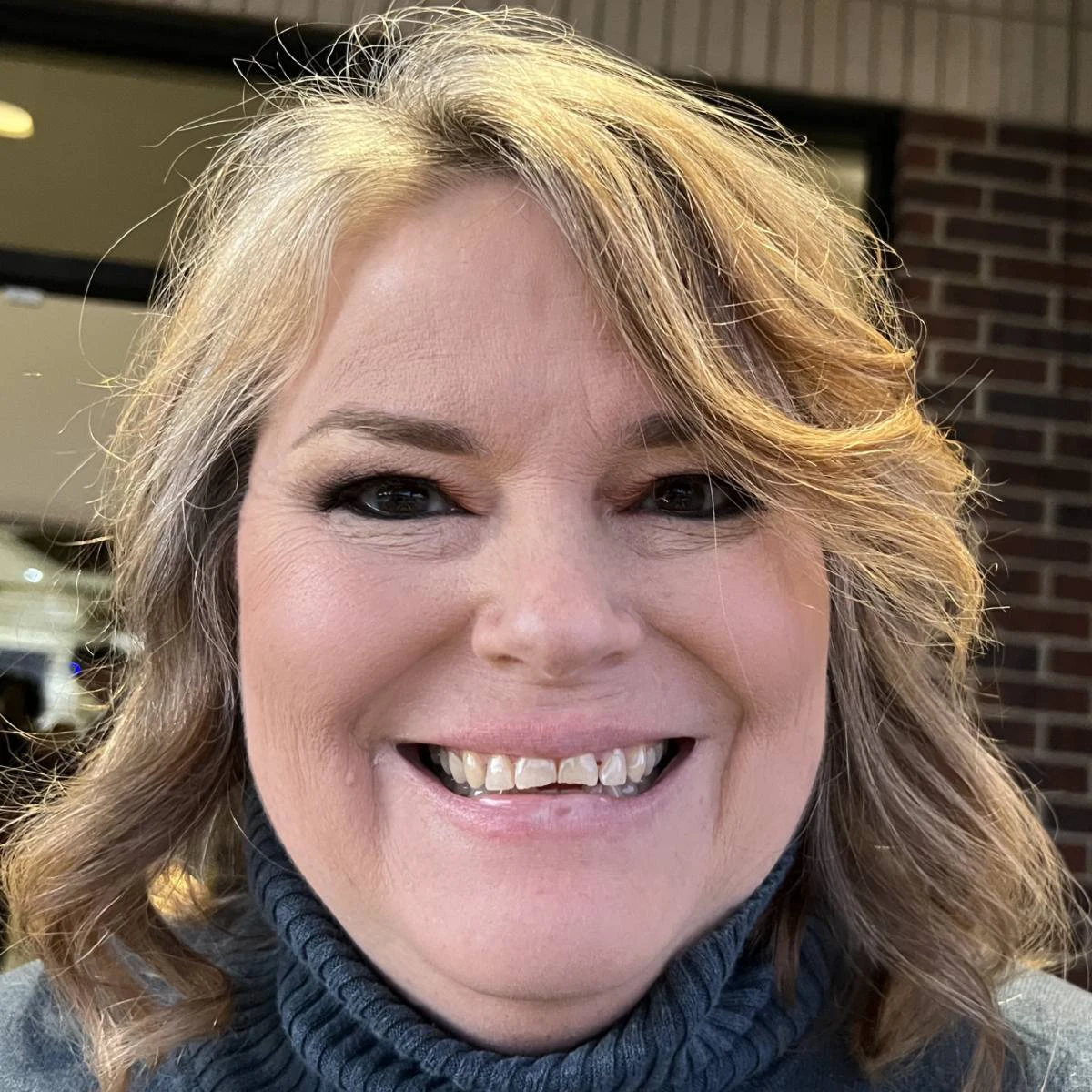Key takeaways:
Beth Allen became the primary caregiver for her aunt as dementia gradually took her aunt’s memory.
Beth learned to accept her aunt’s reality without correcting her and prioritized her own self-care through boundaries and support.
Beth now shares practical advice for others facing similar caregiving challenges.
When dementia slowly started to erode Rosemary Fitzpatrick’s memory, her niece, Beth Allen, says she felt prepared to manage it. As a registered nurse in Philadelphia with years of experience in geriatrics, Beth understood the signs and challenges of dementia.
But when dementia became part of her own family’s daily life, Beth’s role as caregiver became profoundly personal and demanding.
For anyone facing a similar situation, Beth offers insight, practical advice, and a compassionate reminder: Underneath the confusion, the person you love is still there.
Navigating a loved one’s rapid decline
Rosemary’s unraveling began when she started showing symptoms of dementia during the height of the COVID-19 pandemic in spring 2020. Though she was 76 and living independently in Philadelphia’s Center City, her memory started to falter. Beth, who had always shared a close relationship with her aunt, saw her once-vibrant personality begin to fade.
“This was so incredibly painful to me, because she was a mother to me in every sense,” says Beth, 53, who is married and has three grown sons. “It was hard for me to watch her fall apart.”
Despite the family’s suggestion to move into assisted living as her doctor recommended, Rosemary refused and became defiant. But by September of that year, the family insisted and helped her move into a care facility.


By then, Rosemary’s cognitive impairment had really started to accelerate — and in 6 months, she would need to move to a memory care facility, which provides specialized care for people with dementia.
“She became unhinged, and she was not able to adapt to the new environment,” says Beth, who became her aunt’s primary caregiver.
Rosemary’s transition to memory care brought its own challenges. She began calling Beth up to 50 times a day, seeking reassurance for everyday worries.
Beth and her cousins started a group text to check in with each other at the end of each night. Among them all, they were getting about 200 calls a day. Even strangers would call Beth, saying: “Are you Beth? Do you have an Aunt Rosemary?”
What are the signs of Alzheimer’s and dementia? Read about early symptoms, such as memory loss and moments of confusion.
How can you help a loved one with dementia? Read one woman’s heartwarming story of bringing her husband joy through intergenerational visits and baby doll therapy.
What tips do others have for navigating dementia? Here’s how a daughter kept her mother mentally engaged.
“It was wild,” Beth says. “At one point, I stopped answering the phone between 10 to 7. It didn’t matter how long I stayed on the phone. She was inconsolable.”
Rosemary was diagnosed with vascular dementia. Though she still recognized loved ones, her memory lapses affected basic tasks such as showering, and she’d often forget recent conversations.
Beth’s approach: Meeting Rosemary in her reality
Beth had to accept that contradicting or “correcting” Rosemary only heightened her agitation.
Read more like this
Explore these related articles, suggested for readers like you.
A critical lesson Beth shares with caregivers is to embrace the reality of those with dementia, even when it seems disconnected from logic.
“Meet them where they are,” Beth says. “They live in their own reality — and to them, it is real. It is happening. The more you try to convince them of what is reality, it increases agitation.”
During rare moments of clarity, Rosemary would ask Beth about her family, demonstrating that the woman Beth knew and loved was still there. But those moments were fleeting. At times, Rosemary would ask about her own mother, unaware that she had passed away years ago.
The toll on Beth and the importance of self-care
As Rosemary’s condition worsened, Beth’s emotional and physical health began to deteriorate. She sought counseling to help her cope with the grief and exhaustion that come with watching a loved one decline.
“It’s brutal to watch dementia,” Beth says.
To honor her aunt’s memory, Beth named her red Volkswagen convertible “Rosie,” a small reminder of the bond they shared.
Setting boundaries, seeking support, and prioritizing self-care became essential for Beth. She regularly sought comfort from friends and family, often relying on humor to ease the tension.
“Sometimes, a funny YouTube video was just what I needed,” Beth says.
Beth’s advice for caregivers
Based on her experience, Beth offers practical advice for those caring for loved ones with dementia. She also teaches people about caring for themselves while caring for someone else in a course called The Forgotten Caregiver.
1. Childproof the house
Treat your loved one’s living space as though a child lives there. Remove dangerous items, secure doors, and use childproof locks.
2. Respect your loved one’s reality
Avoid arguing or correcting. Meet them where they are to reduce agitation and confusion.
3. Plan ahead when it comes to legal affairs
Help your loved one arrange their legal affairs early on, designating power of attorney and documenting their end-of-life wishes while they are still lucid.
4. Set boundaries to protect your mental health
Protect your mental health by setting communication boundaries. As Beth did, consider setting specific hours to answer phone calls, or rely on others for support.
5. Reach out to your own support network
Reach out to friends, family, or professionals to help you cope with the emotional toll of caregiving. This journey is difficult — finding ways to laugh and sharing your frustrations can lighten the load.
“Put your own welfare ahead of theirs,” Beth says. “If you go down, they’re going down with you.”
Taking care of her aunt taught Beth to step back when she felt overwhelmed and remind herself that her aunt’s memory loss was not something she was doing on purpose.
“Their brain is literally breaking down,” Beth says. “You have to give them compassionate support.”
Looking back, Beth cherishes the moments she shared with her aunt. “She was a gift to all of us,” Beth says.

Why trust our experts?





















